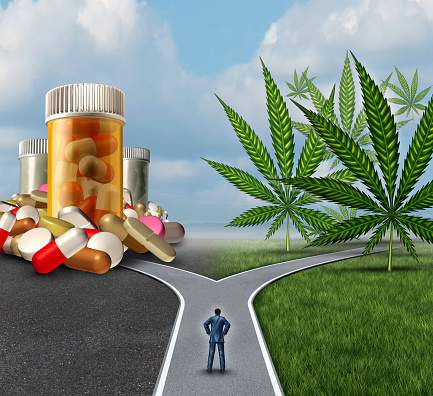
The Safety of Cannabinoids vs. Pharmaceuticals: A Comparative Analysis
Share
As the use of cannabinoids for therapeutic purposes gains more acceptance, a critical question arises: How safe are cannabinoids compared to traditional pharmaceuticals? This blog explores the safety profiles of both, providing insights into their effects, risks, and benefits to help you make informed health decisions.
Understanding Cannabinoids: Cannabinoids, such as CBD (cannabidiol) and THC (tetrahydrocannabinol), are naturally occurring compounds found in the cannabis plant. These compounds interact with the body’s endocannabinoid system, which plays a role in regulating various physiological processes including pain, mood, and appetite.
Safety Profile of Cannabinoids:
- Non-Addictive Nature: Unlike many pharmaceuticals, especially opioids, cannabinoids like CBD are non-addictive, making them a safer alternative for managing chronic pain and anxiety without the risk of dependency.
- Lower Side Effects: Cannabinoids typically have fewer and less severe side effects compared to many drugs. Common side effects are mild and might include dry mouth, fatigue, and changes in appetite.
- Non-Toxic: Cannabinoids are generally considered non-toxic to organs with proper usage. Fatal overdoses from cannabinoids are virtually unheard of.
Comparing with Pharmaceuticals:
- Addiction and Dependency Risks: Pharmaceuticals, particularly opioids and benzodiazepines, carry significant risks of addiction and withdrawal symptoms, which is a major concern in treating chronic conditions.
- Side Effects: Many pharmaceuticals come with extensive lists of potential side effects, some of which can be severe or life-threatening, such as gastrointestinal issues, cardiovascular complications, and liver damage.
- Long-Term Health Risks: Long-term use of certain pharmaceuticals can lead to substantial health risks, including organ damage and increased susceptibility to other diseases.
Case Studies and Research:
1. Chronic Pain Management:
- Study Overview: A comprehensive review published in the Journal of Pain Research analyzed multiple studies on the use of cannabinoids, particularly CBD, for chronic pain relief.
- Findings: The review found that patients treated with cannabinoids experienced significant reductions in pain levels, with fewer side effects compared to those using traditional opioids. Additionally, cannabinoid users reported improved quality of life and better sleep.
- Comparison: Unlike opioids, which have a high risk of addiction and overdose, cannabinoids presented a safer profile with no reported cases of fatal overdose and lower incidence of dependency.
2. Treatment of Epilepsy:
- Study Overview: Several clinical trials, including those leading to the FDA approval of Epidiolex (a CBD-based medication), have demonstrated the effectiveness of cannabinoids in treating severe forms of epilepsy, such as Dravet syndrome and Lennox-Gastaut syndrome.
- Findings: These studies showed that CBD significantly reduced the frequency of seizures and was well-tolerated by patients. Some patients who were resistant to traditional antiepileptic drugs responded positively to CBD.
- Comparison: Traditional antiepileptic drugs can cause severe side effects, including dizziness, weight gain, and liver damage, whereas CBD exhibited a milder side effect profile.
3. Anxiety and Depression:
- Study Overview: A study published in The Permanente Journal evaluated the use of CBD for anxiety and sleep.
- Findings: The study reported that nearly 80% of the participants experienced a decrease in anxiety levels, and almost 70% reported improved sleep within the first month of CBD treatment.
- Comparison: Common pharmaceuticals for anxiety, such as benzodiazepines, can lead to dependence and severe withdrawal symptoms. In contrast, CBD did not exhibit these risks and was effective in managing symptoms.
4. Anti-inflammatory Effects:
- Study Overview: Research conducted by the University of Colorado investigated the anti-inflammatory properties of cannabinoids.
- Findings: The study concluded that cannabinoids like CBD and THC have potent anti-inflammatory actions across various models, supporting their use in conditions like arthritis and MS.
- Comparison: Nonsteroidal anti-inflammatory drugs (NSAIDs), while effective, are associated with risks such as gastrointestinal bleeding and kidney damage, which were not observed with cannabinoid use.
These case studies underscore the potential of cannabinoids as effective and safer alternatives to traditional pharmaceutical treatments in various medical scenarios. By integrating cannabinoids into medical treatments, patients may achieve comparable or superior outcomes with a lower risk profile.
While both cannabinoids and pharmaceuticals have their place in medicine, cannabinoids offer a promising alternative with a generally safer profile, particularly for long-term use. As research continues to evolve, it is crucial for patients and healthcare providers to consider the full scope of treatment options available, weighing their benefits and risks comprehensively.
